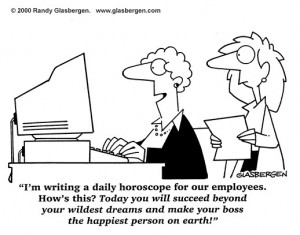 One of the most significant priorities of hiring managers is selecting a person that will make them successful. Every position within a company has goals and expectations. If it didn’t, the position would be eliminated. Managers need to deliver results, and this requires each member of their their delivering results that contribute to the team’s goals. To standout in the interview process, you need to show how you will contribute to the company’s and team’s success.
One of the most significant priorities of hiring managers is selecting a person that will make them successful. Every position within a company has goals and expectations. If it didn’t, the position would be eliminated. Managers need to deliver results, and this requires each member of their their delivering results that contribute to the team’s goals. To standout in the interview process, you need to show how you will contribute to the company’s and team’s success.
This is just the starting point though. There are other factors beyond individual contribution that a hiring manager will consider. A big issue is how easy a person will be to manage. Managers may overseas a few people or dozens. The larger the team, the less time the manager can devote to each individual.
I’m sure you have worked with someone that was very needy. The type of person that requires constant direction and management. This could be caused by insecurity, a lack of initiative or a low skill level. Regardless of the cause, an employee requiring significant time and effort to manage can make the manager less effective. It is rare that a manager today is only responsible for managing their team. Most are tasked with a variety of other responsibilities.
Some people won’t care about the problems and tasks of a potential boss. They are focused on showing they can do the job they are seeking. The downfall of this is hiring managers will hire the person who will make their team successful. This may not be the person with the most experience or talent.
Professional sports routinely show talented athletes that hurt their team’s performance. Terrell Owens has been regarded by many as the most talented receiver in the NFL for a number of years. His ability is exceptional and he can dominate a game. Despite this, he was cut from the Philadelphia Eagles mid-season a few years ago and has now been released from the Dallas Cowboys. There are a number of teams that need a good receiver that have passed over T.O. several times. Recently, the Bills signed him and it will be interesting to see if he helps or hurts the team.
In your job search, it is important to show how you will help the company, your team and your boss. If you only focus on your personal achievement or contributions to the company, without any concern for the success of your team, you can hurt your chances.
In preparing to interview, look at what you did to make the jobs of your past bosses easier. How did you communicate with them? When and how would you ask for help? Are you able to work autonomously or do you need a lot of attention? How did you get along with your team?
Consider these questions before your next interview. Even if you are not asked any of them, you can be certain you will be assessed on how you will contribute to the success of your prospective boss.
